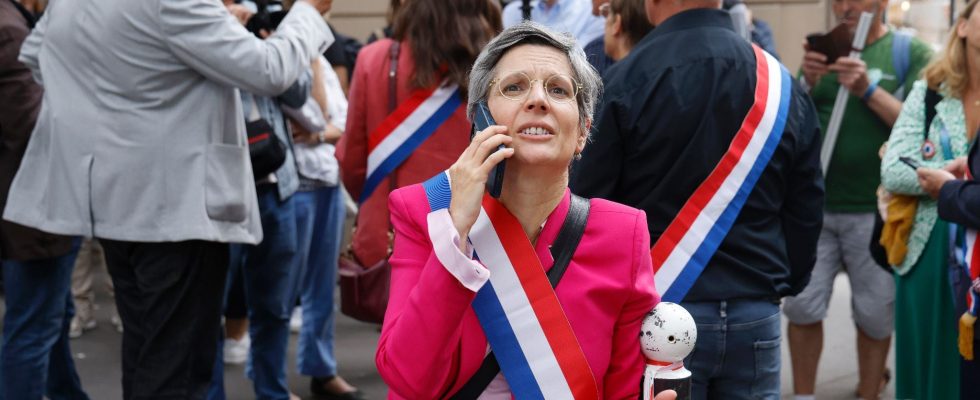“Madame Rousseau! We don’t sing in the hemicycle.” From her chair, Sandrine Rousseau sings the anthem of the Women’s Liberation Movement and accuses France of “obstructing the integration of rape” into the first European directive dedicated to the fight against violence against women. Create buzz through her tool, the video capsule posted on What other personality from his party can say the same? Ultra-popular, and just as divisive, including within his own group. “Her party is ecofeminism, not ecology. Sandrine does not talk about people, but only about herself, mocks a former executive from Europe Ecologie Les Verts (EELV). She is the best ally of Current Values.“But isn’t that the heavy price to pay for existing when you’re green?
This is the paradox: according to the surveys, the environment has become a priority for the French, sometimes to the point of becoming their second major concern, depending on the season. The 2020 municipal elections partly showed this: EELV won seven cities with more than 100,000 inhabitants. So why is its national secretary Marine Tondelier, who will celebrate her first anniversary at the head of the party in December, in last place in the polls among the Nupes leaders tested for the 2027 election? Why does his parliamentary group at the Palais-Bourbon fail to obtain the voice that the times are supposed to give it? “EELV is considered the most credible for managing environmental issues, analyzes Florent Gougou, political scientist specializing in political ecology and teacher-researcher at Sciences Po Grenoble. The problem is that they fail to create lasting and strong conflict around the theme – as the socialists did in the 19th century on the labor question – to convert it into subject number 1.” But how can you fight a fight without a face?
“We do not have the strategy of having 23 personalities, we are a collective, anti-Fifth Republic,” retorts Sandra Regol, deputy for Bas-Rhin. Opposing this model by adapting to it… that’s the squaring the circle.” Because suggesting personalizing power borders on blasphemy among the Greens. Its complex statutes notably prohibit the party boss from being a parliamentarian. “The culture is too strong, people here are proud of this particularity, but it contributes to our disembodiment! Any journalist who goes to the Assembly will find all the party leaders there, except ours,” regrets Alexis Braud, former executive and man in the shadow of Yannick Jadot. Sandrine Rousseau does not say the opposite: “Obviously, people vote for people, even in parliamentary systems. Political maturity requires us to progress on this.” A Parisian elected official adds: “Bite power? Collectively, I see that we have a subject. We are capable, in the European or municipal elections, of putting ourselves in working order. National elections? We don’t think about it. “
This is the purpose of the refounding of the party: on October 14, EELV became Les Ecologistes, with the desire to unite the formation crossed by quarrels over motions and to open it to other horizons. Objective: 1 million supporters. To convert it into a guided movement “towards the time of victories”, as MEP David Cormand says. “Above all, we must succeed in showing people what an eco-friendly person in power would give, relying in particular on our mayors,” suggests a close friend of Marine Tondelier.
Some city councilors view this model favorably, even if they sometimes prefer to stay away from the party. Pierre Hurmic, in Bordeaux, likes to draw a parallel with the municipal socialism of the 1970s, which would bring François Mitterrand to the head of state a few years later. He also likes to quote the Bordeaux philosopher Jacques Ellul: “A party man is only a part of a man”. Others, like Eric Piolle, in Grenoble, an unsuccessful candidate in the environmentalist primary, are invested in the life of the Greens. Twice a week in Paris, he participates in the overhaul of the statutes and the eco-narrative: “For people to vote for us, they must feel that we have a project.” Sitting on the terrace of a café, Sandrine Rousseau expresses doubt: “I challenge anyone to understand the line we defend on public services or social issues.” And added: “Even I would have difficulty describing the society afterward to you.” Even her.
